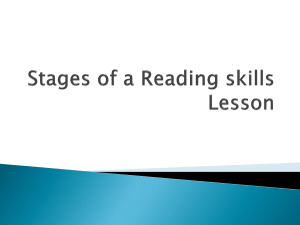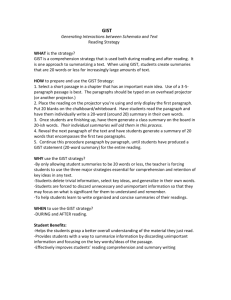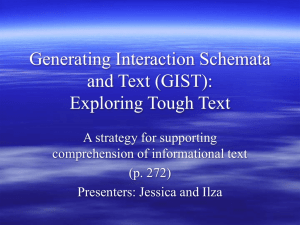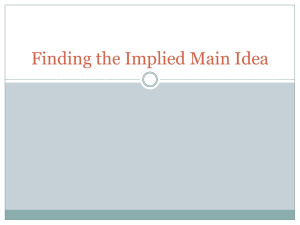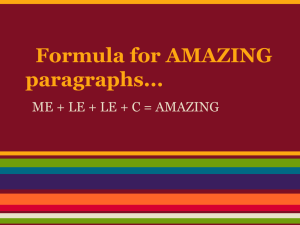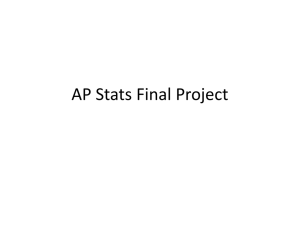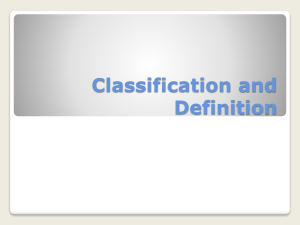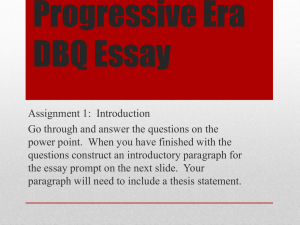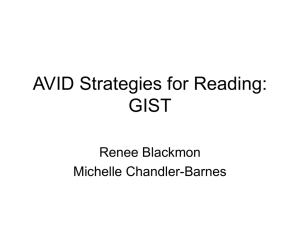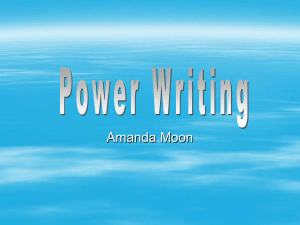File
advertisement
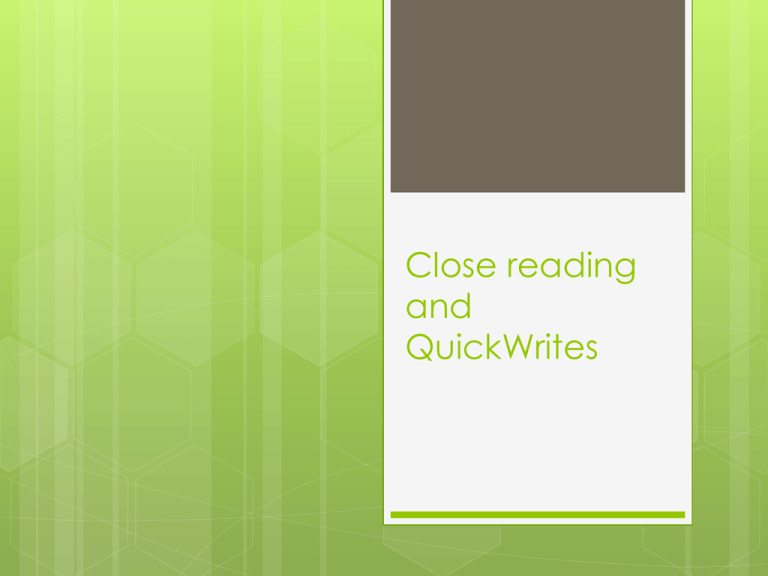
Close reading and QuickWrites Continuing on… I had asked you to read pgs 4-9 To find out more information about Ha. Take a quick moment to review. Please stand up and find another student. Questions With this partner, you will share the gist of the reading homework. Was your idea of the gist the same as your partner’s? Did you remember something else as you shared and listened? Things close readers do Get the gist Reread Cite evidence Things readers do… Explaining and talking about what you are reading is an important way to understand texts. Learning targets…What do you notice?? I can make inferences to deepen my understanding of Inside Out & Back Again. I can cite evidence from the novel to explain how incidents reveal aspects of Ha’s character. I can use context clues to figure out word meanings. I can participate in discussions about the text with a partner, small group, and the whole class. Add to your chart… Use details from the text to make inferences Use context clues to figure out word meanings Talk with others about the text How to Think-Pair-Share 1. Take a few seconds to think about the question or prompt and reread the text as necessary. You may also write down your thinking on the handout. 2. Pair up with a partner and take turns sharing your thinking about the question or prompt. 3. Share with the whole class any thoughts you had, conclusions you came to, questions you still have, etc. “Inside Out” Reread After p. 4. turn to your partner and answer the question, “What is this poem mostly about? Share out… Was your idea of the gist the same as your partner’s? Did you remember something else as you shared and listened? Listen as I read it… Was your initial understanding of the gist confirmed, or did you revise your thinking after talking with your partner? Text dependent questions 1. How do the events in “Inside Out” connect to the first poem we read, ‘1975: Year of the Cat,’ and the title of the novel, Inside Out & Back Again? 2. What specifically does the fortune-teller predict about the family’s future? 3. Ha lives in a war-torn country. How does she hope her life will be turned inside out? 4. Ha knows that ‘inside out’ probably means something different. What will probably happen? Pair up, discuss and write down your answers. Share out… What kind of answers did you get?? Here is what I found… Did you make the connection that both the first two poems are about predicting good or bad luck for the rest of the year? You may wonder if Ha brought bad luck on the family by being the first to rise on Tet instead of her older brother. More… refer to page 4, the first stanza: “he predicts our lives will twist inside out.” Look at key words that help to link the two poems: predicts and foretells. The prefix “pre,” which means “before.” And “dict” means “to say or declare.” So predict means to tell beforehand. Can you see the direct connection between predict in this poem and the synonym foretell (from page 1, “1975: Year of the Cat”)? QuickWrite protocol (Write this in your ISNs) Have I answered the prompt completely? Does my paragraph include the following? A focus statement At least three pieces of specific evidence from the text For each piece of evidence, an analysis or explanation: what does this evidence mean? A concluding sentence Most QuickWrite prompts will be a paragraph in length, and a well-constructed paragraph includes the sentences described above. An example… Go to word and pull up QW document. Your QuickWrite Reread pages 4–9 of Inside Out & Back Again (from “Inside Out” through “Papaya Tree”). • QuickWrite 1: What kind of person is Ha? Use specific evidence from the text to write a paragraph in which you discuss one of Ha’s personality traits. A complete paragraph will include a focus statement, several pieces of textual evidence, explanations about what each piece of evidence shows us about Ha, and a concluding sentence. Use the notes you collected in your journal to help you write this paragraph. Think pair share (no time move on) Will Ha’s actions affect the family’s future? What might Ha’s mother’s visit to the fortuneteller have to do with the family’s future? What does Ha’s comment that ‘the war is coming closer to home’ mean?; and What does the phrase ‘inside out’ usually mean? Based on what you see in the text, and what you already know about that phrase, what do you infer?”
